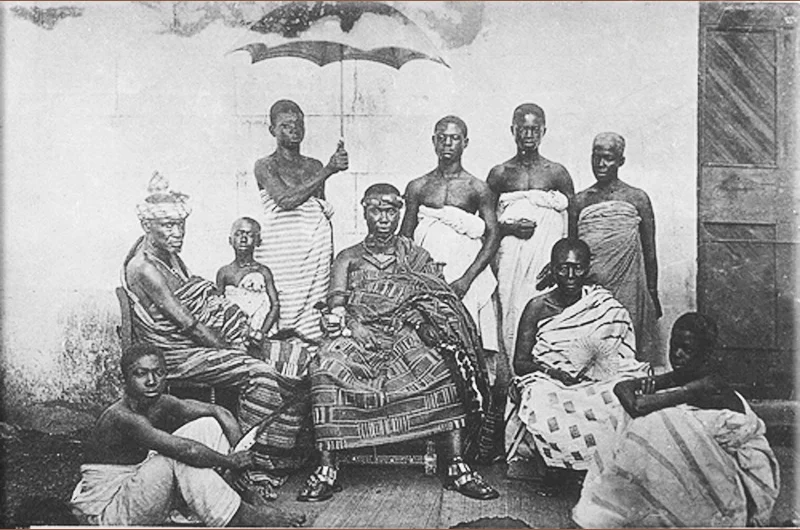Nana Prempeh I (Nana Kwaku Dua III Asamu) landed at the shores of Takoradi on Tuesday, 11th of November, 1924. Following his surrender of his kingdom and his arrest 1896, he began 28 years of exile starting in Elmina then Sierra Leone and eventually in the Seychelles. He returned with the following, all bearing Christian names as they had all been baptized into the Anglican Church while in exile. He was baptized along with his mother on May 29, 1904. His party on return to the Gold Coast, included the following:
1. Akua Moobe – Bantama 2. Lucy Prempeh
3. Ernest Prempeh. 4. Robert Prempeh
5. Alice Prempeh. 6. Victoria Prempeh
7. Amma Kwahan – Mfensi. 8. Akosua Akyaa
9. Samuel Prempeh – Kumase. 10. David Prempeh – Mfensi
11. Amma Serwaa 12. Yaa Yennow – Kumase
13. Victor A. Badu. 14. Peter E A. Baidoo
15. Elizabeth Baidoo 16. Stephen A. Baidoo
17. Yaa Akuade 18. Paul A. Boaten
19. Jersey Baidoo 20. George K. Boaten
21. Henry Boaten 22. Smith Boaten
23. William Boaten 24. Thomas Boaten – Kumase
25. Regina A. Boaten 26. Josephine Kuffour
27. Sara Nkwantabisa – Akorkerri. 28. Frederick Nkwantabisa
29. Hilda Appia – Offinso. 30. Josephine Appia
31. Lucy Appia 32. Louise Appia
33. Williamine Appia 34. Evelyn Appia
35. Fredric Appia 36. William Appia
37. Samuel Appia 38. Robert Appia
39. Akranyame 40. George B. Asibe – Fomena
41. Aurielle A .F. Asibe 42. Aurielle Asibe
43. Davidson Asibe 44. George A. Asibe
45. Elizabeth Asibe
From Takoradi, the King and his people travelled by train to Kumasi on Wednesday, 12th November, 1924. At this time a smallpox epidemic was raging in Ashanti, so the government ordered that there should be no grand durbar for him. Despite the warning, Asantes from all parts of the state came in their numbers to meet their King. To avoid a great multitude of people of meeting him at the railway station, the train had to stop two miles from the city, where he was given a car in which he rode to the city. Even here he was met by jubilant crowd, all in white to signify jubilation and victory. Though the government specifically told him and the Asante Kingdom that he was coming back as a private citizen, according to Asante custom, he had to render a formal account of his period in exile to his people.
